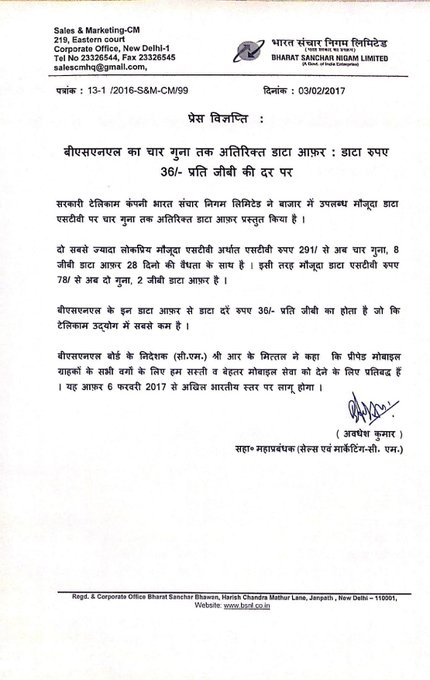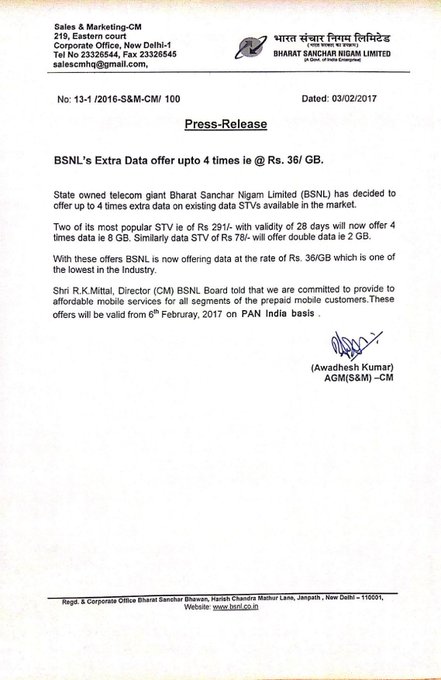State-run telecom firm BSNL has slashed 3G mobile internet rates by about three-fourths, bringing down the cost of per GB data to as low as Rs 36 under a special pack. “Bharat Sanchar Nigam Limited (BSNL) has decided to offer up to four times extra data on existing data STVs (special tariff vouchers) available in the market,” the company said in a statement.
Under the Rs 291 plan, a customer will get four times more data at 8GB with a validity of 28 days against 2GB earlier.
The Rs 78 plan will offer double data at 2GB. “With these offers, BSNL is now offering data at the rate of Rs 36 per GB which is one of the lowest in the Industry,” BSNL said. Reliance Jio is offering free 4G service until March 31, 2017, under which all mobile customers get 1GB of 4G data per day and once the limit is crossed, the speed in reduced. Other private operators have brought down the cost of per GB data to as low as Rs 50. Idea cellular has on offer plans that work out to Rs 50 per GB.
“We are committed to providing affordable mobile services for all segments of the prepaid mobile customers. These offers will be valid from 6 February 2017, on a pan-India basis,” BSNL board director for consumer mobility, R.K. Mittal, said. BSNL continues to dominate the broadband market in fixed-line services segment, with 9.95 million customers and ranks fifth in mobile broadband space with 20.39 million subscribers.
Most of the internet in India is provided through wireless broadband from telecom service providers. The majority of the country is served by GPRS/Edge connectivity, with the next most used connectivity technology being HSPA/WCDMA. Only a small number of people can enjoy the benefits of a stable 2G, 3G or 4G connection.
Although BSNL is the top service provider in the fixed-line segment, BSNL lags behind major telecom service providers in the wireless segment. The spectrum needed for delivering wireless internet services is too expensive for BSNL. The state-run operator is looking at alternatives such as a public network of Wi-Fi hotspots to overcome the scarcity of spectrum.



